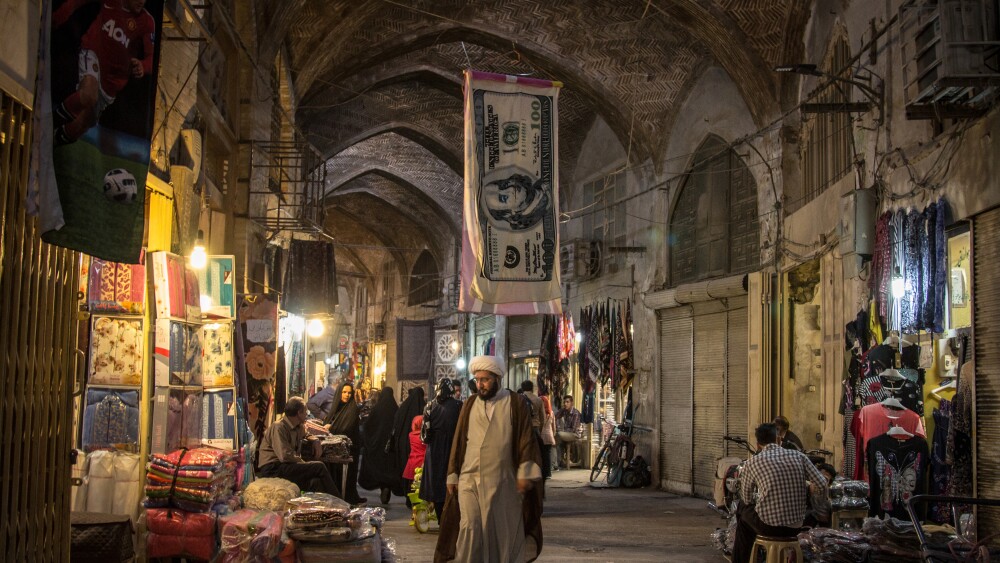Amid mounting economic and social pressures, speculation grows in the West—and even in Tehran’s own media—over whether the Islamic Republic is edging toward a deal with the West before Europe “snaps back” United Nations sanctions in August 2025 or whether Tehran is buying time as it reconstitutes its nuclear and military programs damaged by Israeli and U.S. bombardment.
Nightly rooftop chants against the regime have become routine.
For ordinary Iranians, life is difficult. On July 23, 2025, a prominent journalist tweeted that her neighborhood in Tehran had been without water for 40 hours. Electricity is rationed, consumer prices soar, and signs of unrest have surfaced in the capital and other cities. Commuters stranded in Tehran’s metro stations because of delays chanted anti-government slogans on July 23, some directly targeting Supreme Leader Ali Khamenei. Nightly rooftop chants against the regime have become routine.
The water crisis has laid bare years of mismanagement. Authorities admit they no longer can supply the capital because the Karaj Dam—a crucial source—has run dry after being drained to generate electricity during gas shortages in both winter and summer.
Even Tehran’s media now ask about the government’s strategy. Rouydad 24, a relatively independent news outlet, posed the question directly: “The recent remarks by the president and the foreign minister in interviews with foreign media have raised the question of whether the Islamic Republic of Iran’s foreign policy has undergone a significant shift or is merely employing a tactic to avoid military confrontation and buy more time to get through the current situation.”
So far, the answer is unclear. President Masoud Pezeshkian and Foreign Minister Abbas Araghchi have sent mixed signals. Pezeshkian sounded conciliatory in a July 7 interview with Tucker Carlson but appeared much more defiant in an Al Jazeera interview on July 23. On the critical issue of uranium enrichment, he insisted that Iran would continue enrichment “within the framework of international laws.” Washington has said enrichment must stop, and in June 2025, Israel and the United States bombed three major nuclear facilities involved in Iran’s advanced uranium processing.
Meanwhile, Iran’s Deputy Foreign Minister Kazem Gharibabadi, in New York for meetings at the United Nations, reverted to hardline talking points, focusing on Israel and a reported famine in Gaza. “We also held a joint meeting with the representatives of China and Russia at the United Nations,” Iranian media quoted him as saying. “The three of us have always coordinated our positions on major international issues, as well as matters related to Iran in international forums, and have adopted common stances.”
But neither Moscow nor Beijing can help Tehran weather its domestic crisis. Russia is mired in economic difficulties caused by its war in Ukraine, and China—beyond buying discounted Iranian oil—has far deeper economic ties with Arab producers who have little interest in supporting the Islamic Republic.
Facing growing public anger and the risk of wider unrest, the Iranian government has sought to highlight its diplomatic efforts, publicizing a planned meeting with European representatives to explore prospects for negotiations and inviting a delegation from the International Atomic Energy Agency to visit Iran.
Pezeshkian’s so-called moderate government is moving to tighten internal control.
At the same time, Pezeshkian’s so-called moderate government is moving to tighten internal control. Overwhelmed by a surge of online criticism, it has proposed legislation that would increase penalties for what security agencies label “disinformation.” A social media post deemed inaccurate by the authorities could carry a prison sentence of up to 15 years—five times the penalty for armed robbery.
With no resolution in sight to either domestic turmoil or diplomatic deadlock, the possibility of a second round of Israeli airstrikes remains. Public opinion is divided. Supporters of the government and some others condemn any such attack, but regime-change advocates are less restrained, seeing further blows to Iran’s military and security apparatus as a potential catalyst for mass protests and, possibly, regime collapse.






